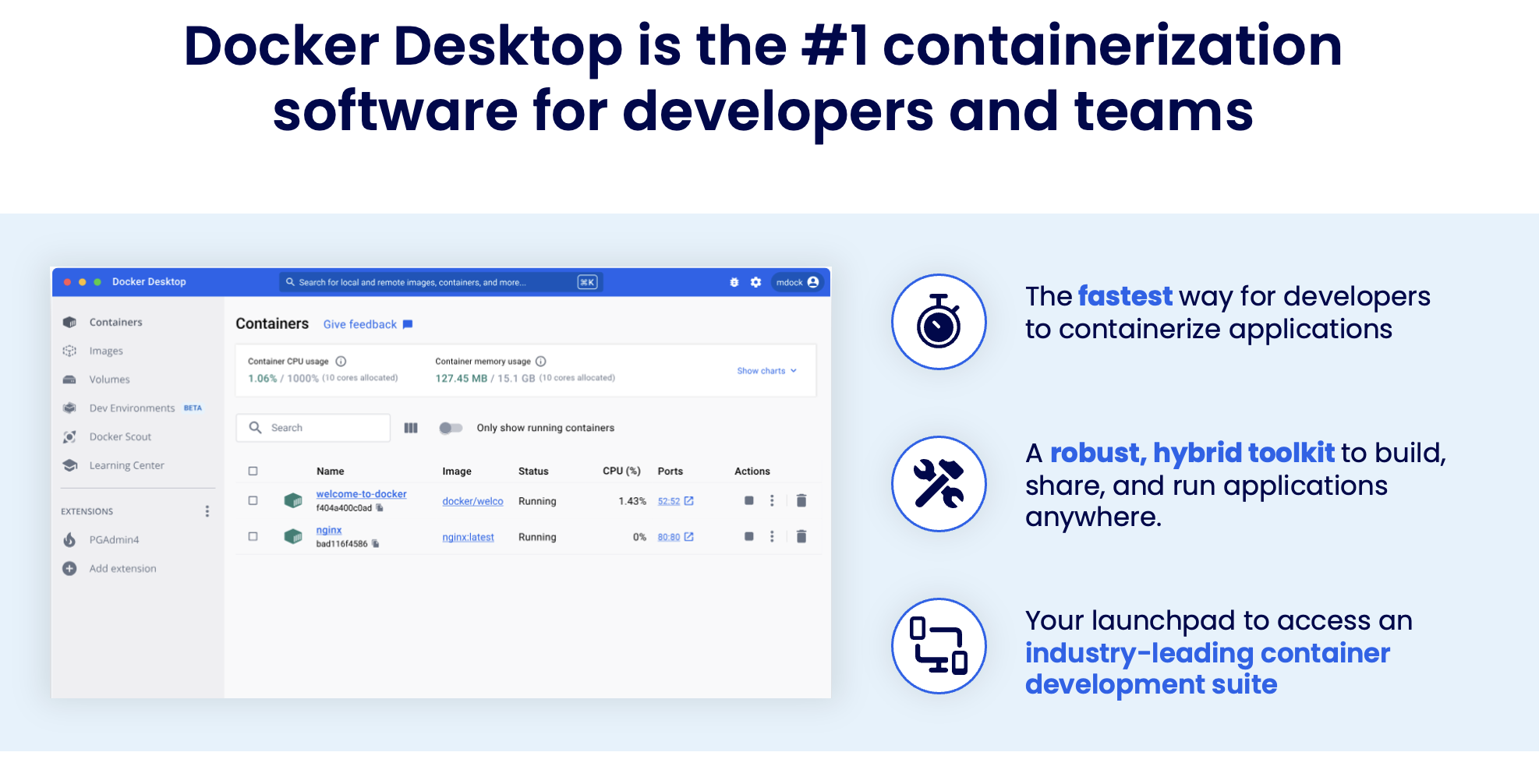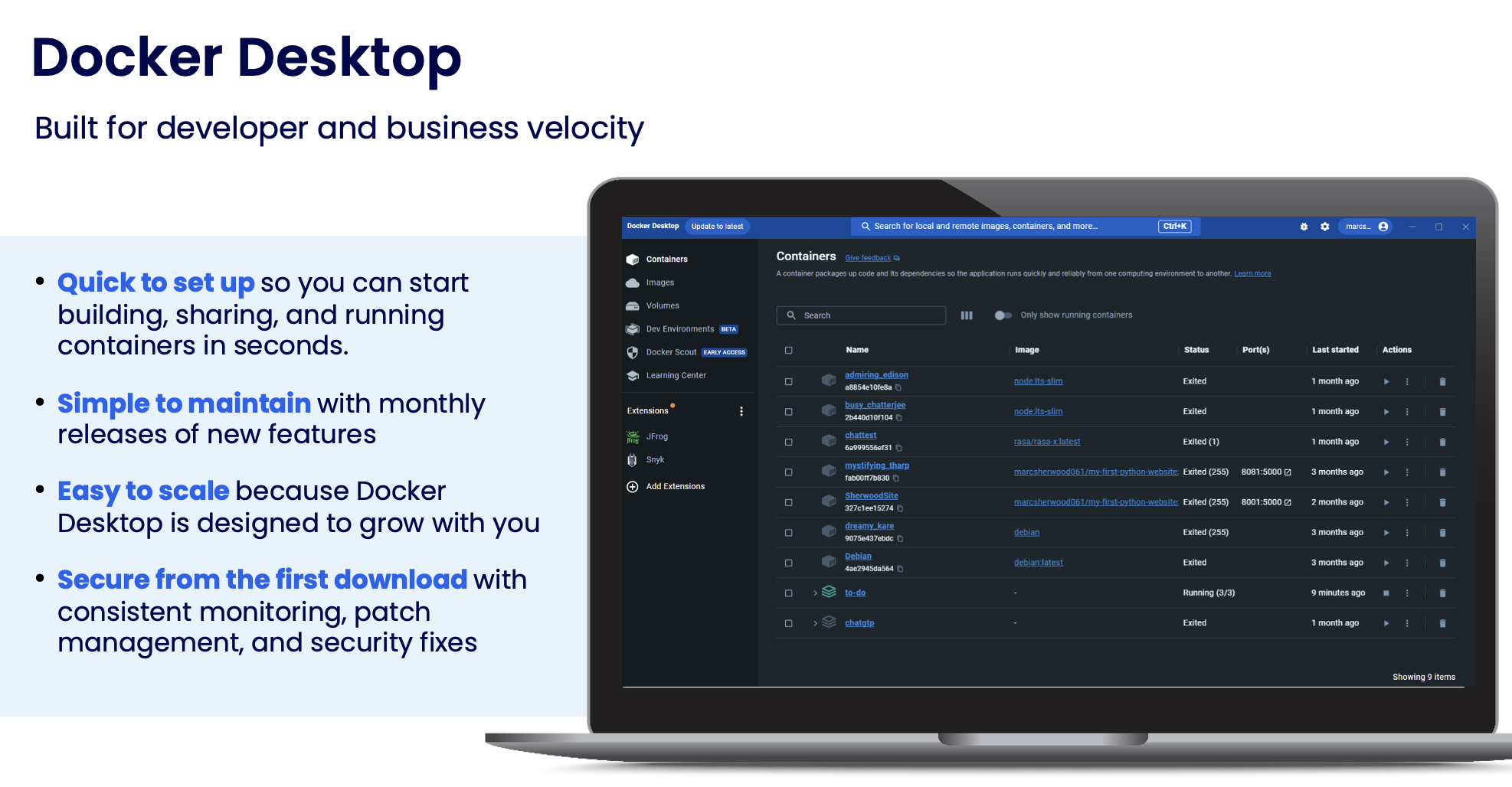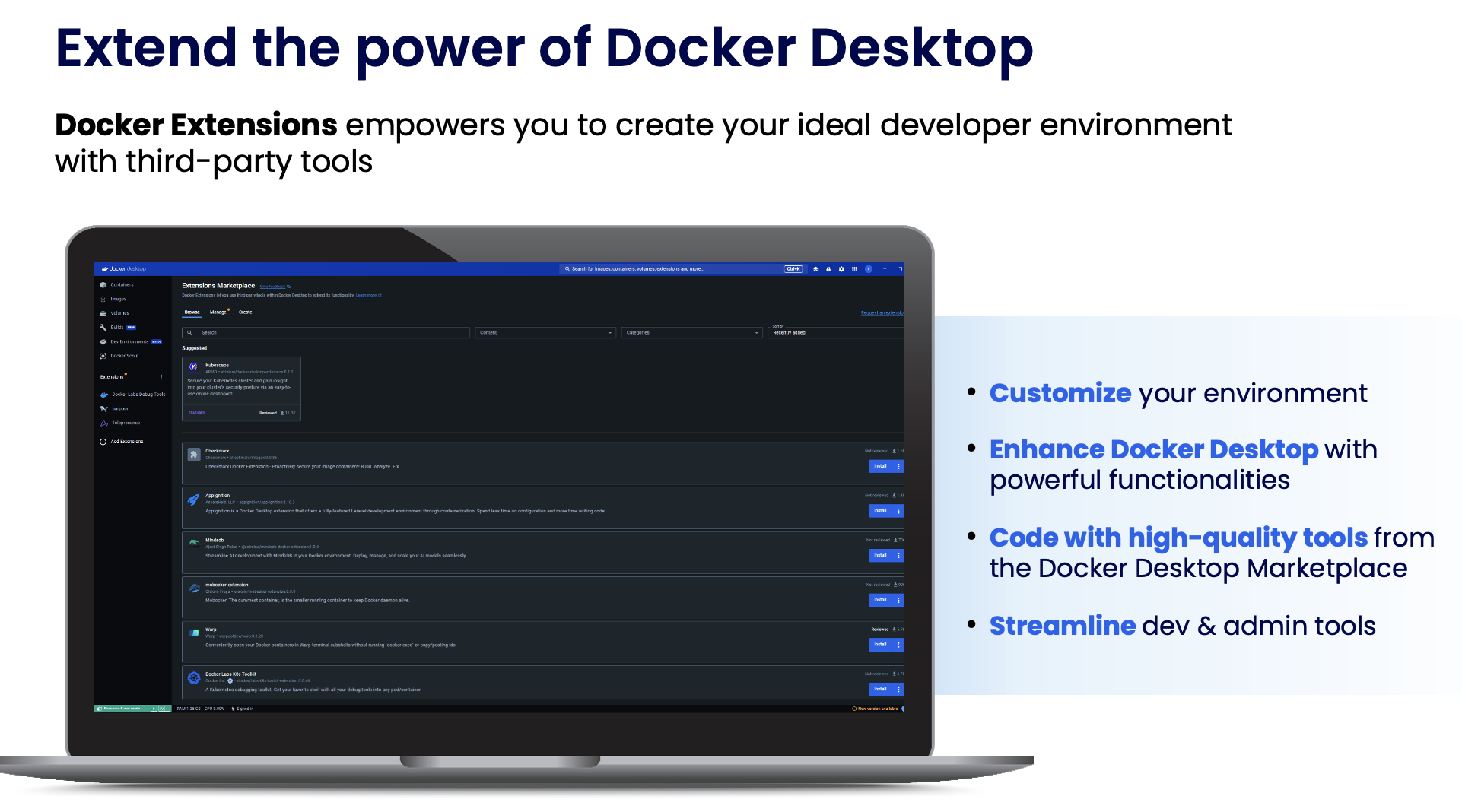Docker Desktop
Docker Desktop is a developer tool that empowers you to build, share, and run containerized applications on macOS, Windows, and Linux. In fact, Docker Desktop is the fastest and #1 containerization software for developers and teams.
Not only does Docker Desktop work out-of-the-box, but it has everything you need with a robust hybrid toolkit. We have made it simpler than ever to get started—in just one click, you can develop and run Linux, Windows, and macOS containers locally (on the developer’s laptop).
Docker Desktop simplifies container management by handling many of the tedious and complex tasks associated with setting up containers. This allows developers to continue focusing on what they love and do best—writing code—instead of spending hours setting up and maintaining Docker locally (i.e., updating the VM, networking, and file sharing mapping between the host and the VM and all the tooling needed to run Docker locally).
It is your launchpad to access an industry-leading container development suite. But to get the most out of our product suite, look no further than Docker Business.
Docker Extensions allow developers to extend existing capabilities and build new functionality into Docker Desktop, empowering them to build apps faster and more securely by accessing everything they need right inside the environment they use every day.
Developers can seamlessly connect their favorite tools to their application development and deployment workflows.
Powerful functionalities such as debugging, testing, security, and networking can also be added to further augment the Docker Desktop experience.
In addition, Docker Extensions SDK will allow organizations to build entirely new integrations specific for their development teams and ensuring further functionality of admin tools.
Now that you know more about Docker Desktop, let’s go over the value of having Docker Hub within the Docker experience.

Built for Developer and Business Velocity

Extend the Power of Docker Desktop
Docker Extensions empowers you to create your ideal developer environment with third-party tools.
